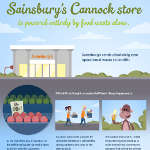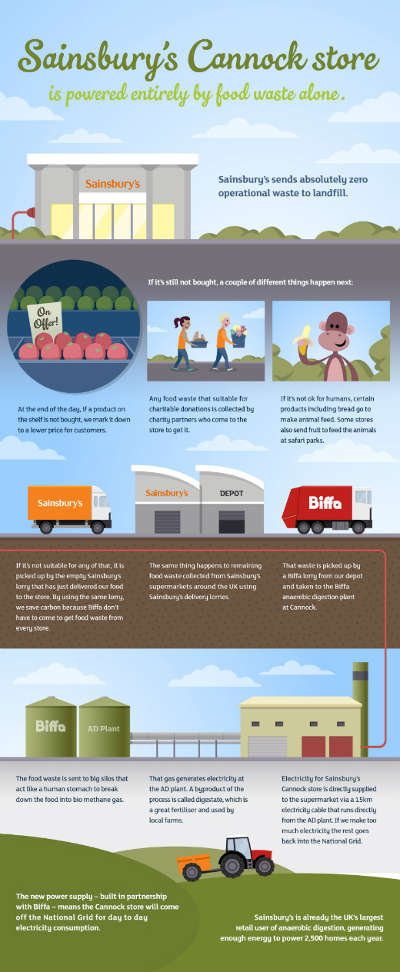
 Food waste is at the heart of major environmental issues, with the United Nations Food and Agriculture Organisation (FAO) stressing the urgent need to find solutions. According to a recent article by the global institution, "the economic, environmental and social cost of food wastage is around 2.6 billion dollars per year", or around 1,631 billion pounds.
Food waste is at the heart of major environmental issues, with the United Nations Food and Agriculture Organisation (FAO) stressing the urgent need to find solutions. According to a recent article by the global institution, "the economic, environmental and social cost of food wastage is around 2.6 billion dollars per year", or around 1,631 billion pounds.
These figures do not take into account other non-quantifiable parameters such as the value of rejected fish, "the increase in the price of foodstuffs due to the decrease in supply" and the "loss of biodiversity in pastures".
New initiatives continue to be developed, coinciding with increased awareness of the subject in the general public. On their side, companies are also beginning to invest in means to make their chains more responsible, following FAO recommendations. Thus, the UK supermarket chain, Sainsbury's, is currently experimenting a system to allow its Cannock supermarket to eliminate its food wastage.
The system tested in the store consists, initially, of reducing the price of perishable goods at the end of the day. Thus, customers benefit from lower prices and reduce the share of unsold products. Once the supermarket is closed, food products with a close use-by date are sorted, and those that can still be consumed without danger are given to charities to be redistributed.
After these two stages, there is still a considerable amount of food products that finishes in the dustbin. Sainsbury's distinguishes itself from the majority of its competitors by giving away food that can be consumed by animals to farmers and animal parks. But the foodstuff's adventures don't stop there. Food that has not been given away as it is not edible is destined to become energy for the store itself.
The Sainsbury's group has signed a partnership with charity organisations and also the Biffa company, specialised in the recycling of waste and methanisation. This process, already used by many farmers, uses the deterioration of organic waste to produce biogas and electricity. Also called anaerobic digestion, this method requires the waste to be mixed in a large tank, in the absence of oxygen. This process provides a source of energy, and also has a strong environmental impact, avoiding methane emissions that are partly responsible for climate change.
Sainsbury's delivery trucks use their delivery circuits to the different stores in the country to recover the food waste that cannot be given away, and bring it back to the main depot. Biffa's lorries recover it in one central place, further reducing greenhouse gases. The energy produced on the Biffa site then travels to the Sainsbury's Cannock store via a 1.5 kilometre electric cable. The store is fully self-sufficient in energy, and the electricity that it doesn't use is provided to the town's electricity grid.
This is not the first attempt by the Sainsbury's group to reduce its environmental impact. In 2013, the company opened two stores, known as "Triple Zero", with the aim of reducing their carbon footprint by improving their equipment (refrigerators, freezers, lighting...) and installing alternative energy sources such as solar panels. These stores also work to reduce food wastage and to use water more responsibly.
With this type of process, the supermarket chain already accounts for energy production equivalent to 2,500 UK households per year.
News in the same category
Boasting a population of just under 200,000 residents, Chester has remained a rather quaint city although its popularity has certainly grown over the years.
Sainsbury's currently testing a new layout in six supermarkets in the UK. The goal is to make shopping even more easy and fast.
With this year’s summer shaping up to be a hot one, ice cream vendors the length and breadth of the country are hoping to scoop the profits. So here is a small selection of the best ice cream parlours in the UK.
Merry Hill Shopping Centre in Dudley has revealed exciting new plans that will create a much larger Primark store in the centre.




